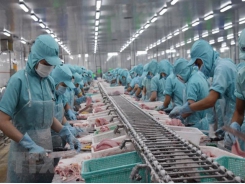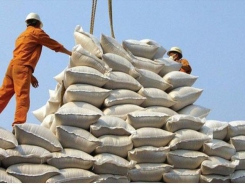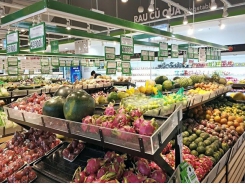Drastic changes needed in farming practices to access EU market

Maximise the opportunities that will come with the impending Vietnam - EU Free Trade Agreement (EVFTA), farmers and cooperatives are advised to implement changes to their farming methods in an effort to meet the higher standards of the EU market.
Nguyen Ngoc Nhan, head of Binh Hoa Phuoc Cooperative in Long An province, underscored the importance of applying organic farming practices, using organic fertilisers and biological products to create higher quality items with the aim of raising standards to penetrate the demanding market.
Thanks to the application of the farming practices, the cooperative’s rambutan products have been exported to a range of stringent markets such as France and the Netherlands, said Nhan, adding that both countries are willing to pay higher prices than several other markets when importing agricultural items that come up to the strict requirements in terms of design, quality, and pesticide residue so that food safety and hygiene standards can be ensured.
A local farmer who cultivates dragon fruits in Chau Thanh district, the Mekong Delta province of Long An, elaborated that since switching to the organic farming methods, both output and overall product quality has risen exponentially, coupled with products being sold at a higher price.
Tran Ngoc Bao Binh, the head of the raw material area of Chanh Thu Company in Ben Tre province, pointed out that the EU is a highly demanding market when it comes to applying stringent requirements regarding design, product quality, and antibiotic residues. Therefore, he recommended that local farmers should be striving to gradually eliminate chemicals, switch to organic farming, whilst also keeping a cultivation journal, as European firms carefully examine these technical requirements when choosing to import Vietnamese products.
According to Le Van Thiet, Deputy Director of the Plant Protection Department under the Ministry of Agriculture and Rural Development, Vietnamese fruits have been successfully exported to 60 countries and territories globally, with farmers applying VietGAP and Global GAP standards in line with farming procedures that see the use of chemicals prohibited.
With the rate of use of organic fertiliser in production being roughly 10%, Vietnam aims to increase the rate to 30% by 2030.
Có thể bạn quan tâm
Phần mềm

Phối trộn thức ăn chăn nuôi

Pha dung dịch thủy canh

Định mức cho tôm ăn

Phối trộn phân bón NPK

Xác định tỷ lệ tôm sống

Chuyển đổi đơn vị phân bón

Xác định công suất sục khí

Chuyển đổi đơn vị tôm

Tính diện tích nhà kính

Tính thể tích ao hồ




 Islet district develops specialised farming areas to adapt…
Islet district develops specialised farming areas to adapt…  China remains largest consumer of Vietnamese farm produce
China remains largest consumer of Vietnamese farm produce